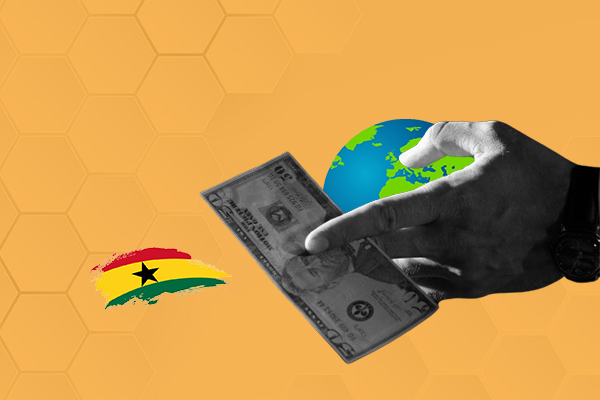Inward remittances, a crucial source of foreign exchange, but when regulations are lax, they might end up in the wrong hands, fueling a black market that dictates exchange rates, particularly for major trading currencies like the US dollar.
In the 2022 fiscal year, aside from gold ($6.6 billion) and oil ($5.4 billion), remittances ($4.7 billion) became Ghana's third-largest source of forex inflows, surpassing cocoa exports ($2.3 billion) by more than twice the amount.
World Bank data positioned Ghana as the second-highest recipient of remittances in Sub-Saharan Africa after Nigeria. However, a significant discrepancy emerged as the Bank of Ghana recorded over $2 billion less than the World Bank’s reported $4.7 billion, resulting in a significant unaccounted difference of over $2 billion.
This substantial sum often falls into the hands of unauthorized money transfer institutions and payment platforms that neglect to report these inflows to the central bank or the 23 authorized dealer banks responsible for handling forex on behalf of the state. A portion of this unreported $2 billion is also retained by citizens who prefer to hold their forex.
The depreciation of the Ghanaian cedi by over 50% against the US dollar in 2022 was largely influenced by the activities of speculative mechanisms and the black market, where all undocumented forex inflows converge.
Examining the variance between World Bank and Bank of Ghana records reveals a widening gap. Strikingly, as regulations governing forex inflows expand, the unrecorded amount in the central bank's books seems to widen.
The introduction of regulatory measures like the Payment Systems and Services Act (2019) and the National Payment Systems Strategic Plan (2019-2024) by the Bank of Ghana aimed to foster an environment conducive to financial innovations but inadvertently led to the proliferation of unregulated forex transactions.
Money Transfer Companies (MTCs), private entities specializing in international money wiring, play a crucial role in remittance transfers due to their reliability, speed, and convenience.
In Ghana, MTCs like Vigo, Small World, Ria, Western Union, MoneyGram, Cigue, Unity Link, and Express Money Transfer have extensive networks for easy fund accessibility. Additionally, telecommunication companies (e.g., Tigo, Airtel, MTN, Vodafone) have increasingly contributed to money transfers within the country, with Mobile Money services enabling direct transfers to wallets in Ghana.
The emergence of Dedicated Electronic Money Issuers (DEMIs) like Zeepay, licensed under Ghana's Payment Systems and Services Act of 2019, signals a shift toward Fintech-driven electronic money services, with only a handful of companies currently licensed in Ghana.
The increasing diversion of forex inflows away from the Bank of Ghana's oversight poses significant challenges to Ghana's economy, notably impacting exchange rate and inflation policies. The compilation of remittance data by the Bank of Ghana remains intricate, lacking a comprehensive framework to capture these transactions, and this could jeopardize the gains made through Ghana's IMF program aimed at stabilizing the local currency, curbing inflation, and reducing debt to sustainable levels. Addressing these discrepancies promptly is crucial to mitigate potential economic instability in the West African state.
Latest Stories
-
50 Nigerians arrested in McCarthy Hills raid over cyber fraud and trafficking
2 minutes -
Father killed, son injured in armed robbery attack on Bole-Bamboi highway
4 minutes -
Ghana Shippers Authority and Prof Ransford Edward Van Gyampo in focus
12 minutes -
GH₵13bn for Big Push insufficient – Egyapa Mercer
17 minutes -
I paid people to insult me so I would be popular – Akuapem Poloo
33 minutes -
WAFCON 2024: Black Queens are a ‘better team’ now – Björkegren
42 minutes -
Council of State member escapes highway robbery as gunmen steal cash and rifle
57 minutes -
BBC and news agencies warn journalists in Gaza at risk of starvation
60 minutes -
12 killed in Thailand-Cambodia military clashes on disputed border
1 hour -
WAFCON 2024: South Africa want to ‘end on a high note’ against Ghana
1 hour -
Coca-Cola to launch Cane Sugar Coke in the US, potentially boosting Ghana’s sugar economy
1 hour -
Minority threatens to boycott Mid-Year Budget presentation
1 hour -
Isak not in Newcastle’s pre-season Asia tour squad
2 hours -
WAFCON 2024: Black Queens ‘mentally prepared’ for South Africa – Stella Nyamekye
2 hours -
We need special laws to tackle galamsey — Kwadwo Poku
2 hours

